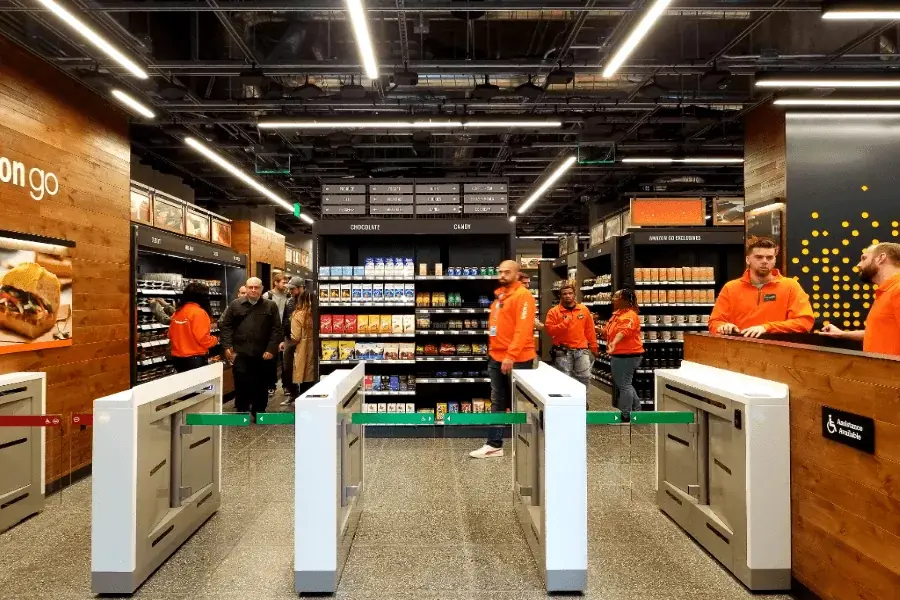Digital Compliance - Why It's Time to Make the Switch
Safe & legal logbooks are the bedrock of any compliance regime and are filled out for hundreds of specific purposes by most employees on a daily...
![]() Facilities Management
Facilities Management
Manage maintenance requests & streamline operations
CMMS
CAFM
EHS
Regulatory Compliance
PPM
EAM
Operations Management
Transportation Management
![]() Food Safety
Food Safety
Prove compliance and ensure standards are up to customer expectations
![]() Retail Task Management
Retail Task Management
Enable your teams to focus on delivering quality and achieve their goals.
Task Creation & Automated Follow-up
Unified Reporting and Data Analysis
Regulatory and Audit Monitoring
Full visibility of every task
IoT
Take action on your data to get ahead
Integrations
Bring mpro5 into your other tools
Automated Workflows
Make your work effortless with automated workflows
Managed Service
Supporting your operations, every step of the way
NEWS & INSIGHTS
Blogs & news
NEWS & INSIGHTS
GET IN TOUCH
GET IN TOUCH
3 min read
 Sam Roberts
:
Sep 12, 2024 12:15:00 AM
Sam Roberts
:
Sep 12, 2024 12:15:00 AM
I’ve worked with many retailers over the years and it’s fair to say that compliance is a perennial thorn in their side. Okay, it’s not exactly riveting but it’s a necessary evil that businesses need to get to grips with. And fast. Why? Because doing so is not only an opportunity to reduce your headaches, but a chance to transform your operations and deliver a consistently high quality customer experience.
There are copious actions that retailers need to perform and document – from recording visitor numbers and fire drills to checking the in-store toilets and monitoring food temperatures. These duties help to keep both staff and customers safe and uphold the brand’s reputation. Not only that, but the accompanying records are essential for demonstrating compliance with the relevant legislation.
For most people, just the thought of recording this volume of data is daunting. But when you consider that many retailers are still relying on paper logbooks to document these actions, the prospect of maintaining retail compliance becomes even more challenging.
Think about it; every time someone completes a required check or action, it has to be recorded manually in its relevant paper book (a very large one, at that). One major retailer we work with told us they have 160 different logbooks that need to be filled out regularly. Laborious? Yes. Time consuming? Definitely. Now multiply these tasks across thousands of stores around the country and you begin to see the scale of the problem.

And then there are the challenges posed by the retail environment itself. The reality of working on a busy shop floor often means compliance-related tasks aren’t completed or recorded on time. Sometimes they’re not carried out at all.
Even when procedures are followed and documented, paper-based records are far from ideal. Logbooks can be filled out incorrectly, easily falsified or even lost. In many cases, these files just aren’t worth the paper they’re written on. This leaves retailers with very little protection should they ever face scrutiny or investigation by the relevant authorities.
To put it bluntly, the whole thing adds up to a compliance officer’s worst nightmare.
What’s more, the consequences of failing to adhere to retail compliance standards can be costly.
A few years back, a well-known retail giant was fined an eye-watering $9.8 million for selling out-of-date food at three of its stores between 2015 and 2017. Meanwhile, a second large retail business was forced to pay $71.5 million for selling moldy food in its Fleet store in 2017. Environmental health officers found the branch had been storing the goods illegally at temperatures of up to 12.5C (54.5F).
And it doesn’t stop there. The Rivergate branch of a third competitor was publicly criticized over its lack of cleanliness and general health and safety record following several incidents. In one case, a customer was awarded $13,000 for injuries he sustained after slipping on a grape while shopping in store.
But before you break out in a cold sweat, it’s worth remembering that there’s always a solution. The answer? Go digital.
Many businesses are now moving away from paper logbooks in favor of digital reporting software.
Unlike paper records, which can be easily backdated, digital logbooks are date and time-stamped when the user completes the check. Not only does this provide tangible proof that the necessary steps have been taken, but it encourages workers to complete the required action on time.
It also gives businesses more confidence that they’re complying with the relevant legislation. But perhaps most importantly, it demonstrates that a business is truly committed to keeping its customers safe.
Waving goodbye to paper logbooks has obvious advantages, but that’s not to say this transformation is just about compliance.
Digitization will bring about cultural change, making compliance a central task rather than a peripheral chore. Your teams will appreciate the increased accountability and clarity around compliance.
It's the improved customer experience that makes a digital solution so compelling. Optimizing processes and freeing-up your colleagues' time so they can better focus on delivering great service is one benefit, as are the cost-savings and better protection against litigation and for customers and staff.
But the core benefit of going digital is this: it enables you to deliver a consistent, safe and high-quality shopping experience that will stand out from the crowd.
While adoption can be daunting, my clients tell me that the benefits of moving to a digital management platform have made the journey worthwhile.
Safe & legal logbooks are the bedrock of any compliance regime and are filled out for hundreds of specific purposes by most employees on a daily...
Imagine walking into a store and seeing a mess in the front display units: Shelves are disorganised, stock low and a prior customer abandoned their...

Technological advancements are continuing to transform the retail industry, with the Internet of Things (IoT) leading the charge. Research shows that...